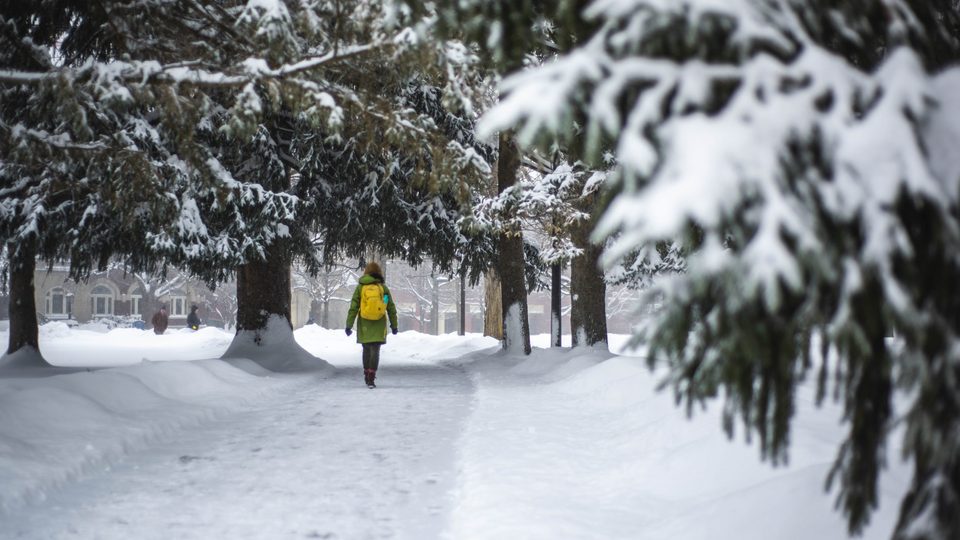(April Fool) Carleton College Announces Winter-Free Academic Calendar
Carleton College today announced plans to adopt a revolutionary new academic calendar.


EDITED TO ADD: Alas for those who thought our April Fool’s Day fun was real, Carleton will continue to follow a fall-winter-spring academic calendar. 😉
Carleton College today announced plans to adopt a revolutionary new academic calendar beginning with its 2020-2021 academic year. Already among a minority of academic institutions that follow a trimester calendar rather than a semester-based year, Carleton will soon become the first American college to adopt a spring-summer-fall calendar.
Under the innovative new trimester system, winter term will replace summer as the three-month hiatus in the Minnesota-based college’s academic year.
“This is a bold and unprecedented move,” acknowledged Carleton president Steven Poskanzer in a campus announcement this morning. “But we at Carleton have long prided ourselves on a willingness to challenge even the most basic assumptions about our institution—especially when it serves the best interests of our students, faculty, and staff.”
This climate-sensitive calendar will dramatically reduce Carleton’s carbon footprint and save the college millions of dollars in heating costs that will instead be applied to financial aid and academic initiatives, Poskanzer explained. The change will also provide the college with a new competitive advantage in recruiting outstanding students from warmer climates.
The genesis of the new calendar came from a chance encounter with a prospective student this winter, Poskanzer said. “I was crossing the campus in January on one of the coldest days of the Polar Vortex,” he said, “when I happened to meet a visiting student who’d become separated from an admissions tour group—visibly shivering while stopping to consult the campus map on an outdoor kiosk.”
As Poskanzer stepped forward to offer assistance, the visitor turned to him with a bewildered expression. “I’m from Reykjavik,” the student told the concerned president. “How can it be so much colder here than Reykjavik?”
After escorting the prospective student to Sayles-Hill Campus Center to warm up with a complimentary hot chocolate and nourishing broth, Poskanzer found himself wondering if strict adherence to a traditional academic calendar might be doing Carleton a disservice. He soon convened a college committee to consider the question—and was pleased to see that an unprecedented and enthusiastic consensus emerged from the group after only two January meetings.
“That in itself was a very good omen,” Poskanzer noted, “because it’s vanishingly rare for a college committee to come to an agreement without a considerably longer deliberation process. Sometimes years.”
Encouraged by this rapid accord, Poskanzer brought the proposal to the February meeting of Carleton’s Board of Trustees, who approved the unprecedented move. “It simply made economic and competitive sense,” said board chair Wallace Weitz, who noted that although blizzard-related travel delays had prevented most of the trustees from participating in the vote, the four who were present were unanimous in their decision.
The college is planning a kickoff celebration and campus information session about the calendar in July, Minnesota’s warmest month. Further details will be released soon on the college’s website, carleton.edu.